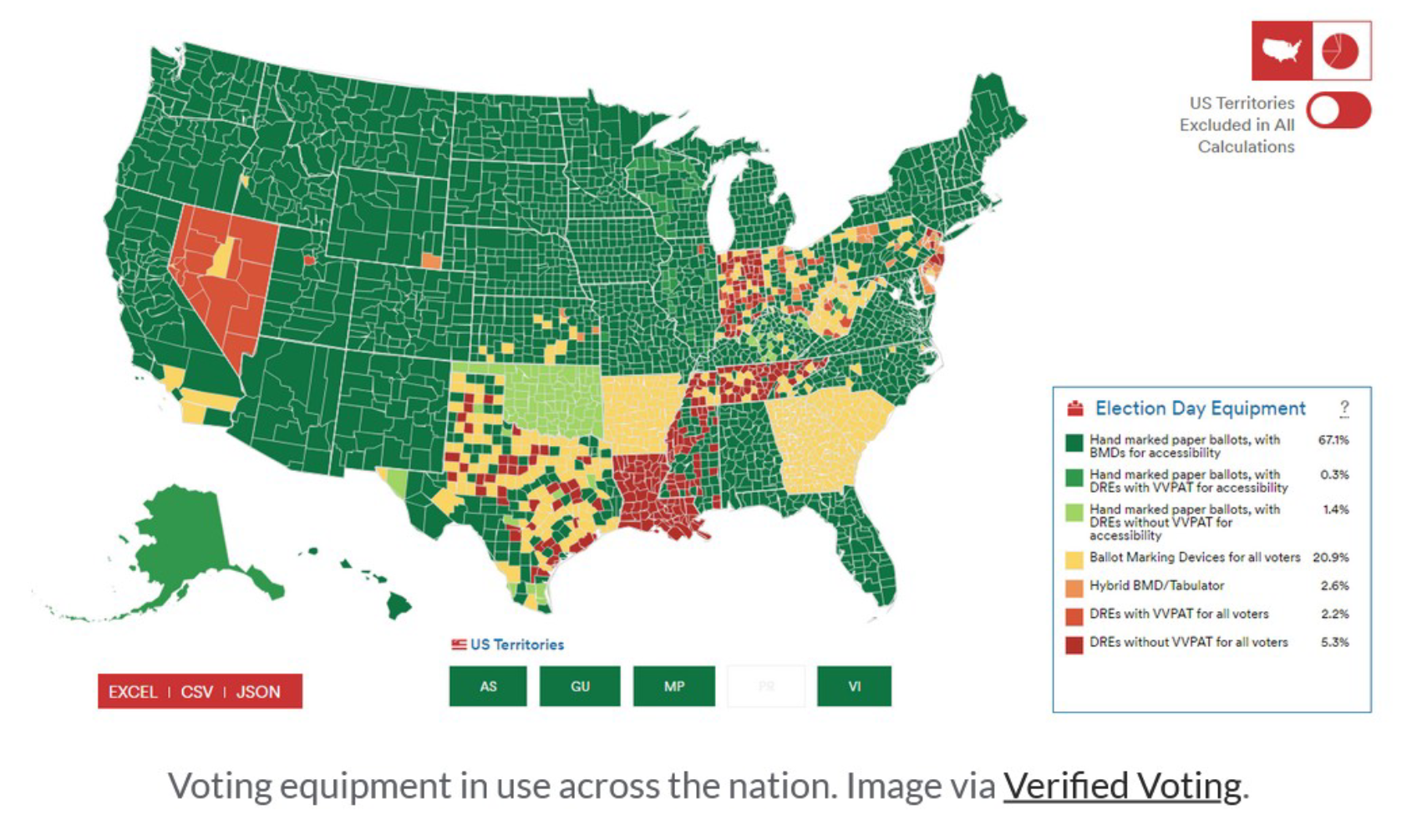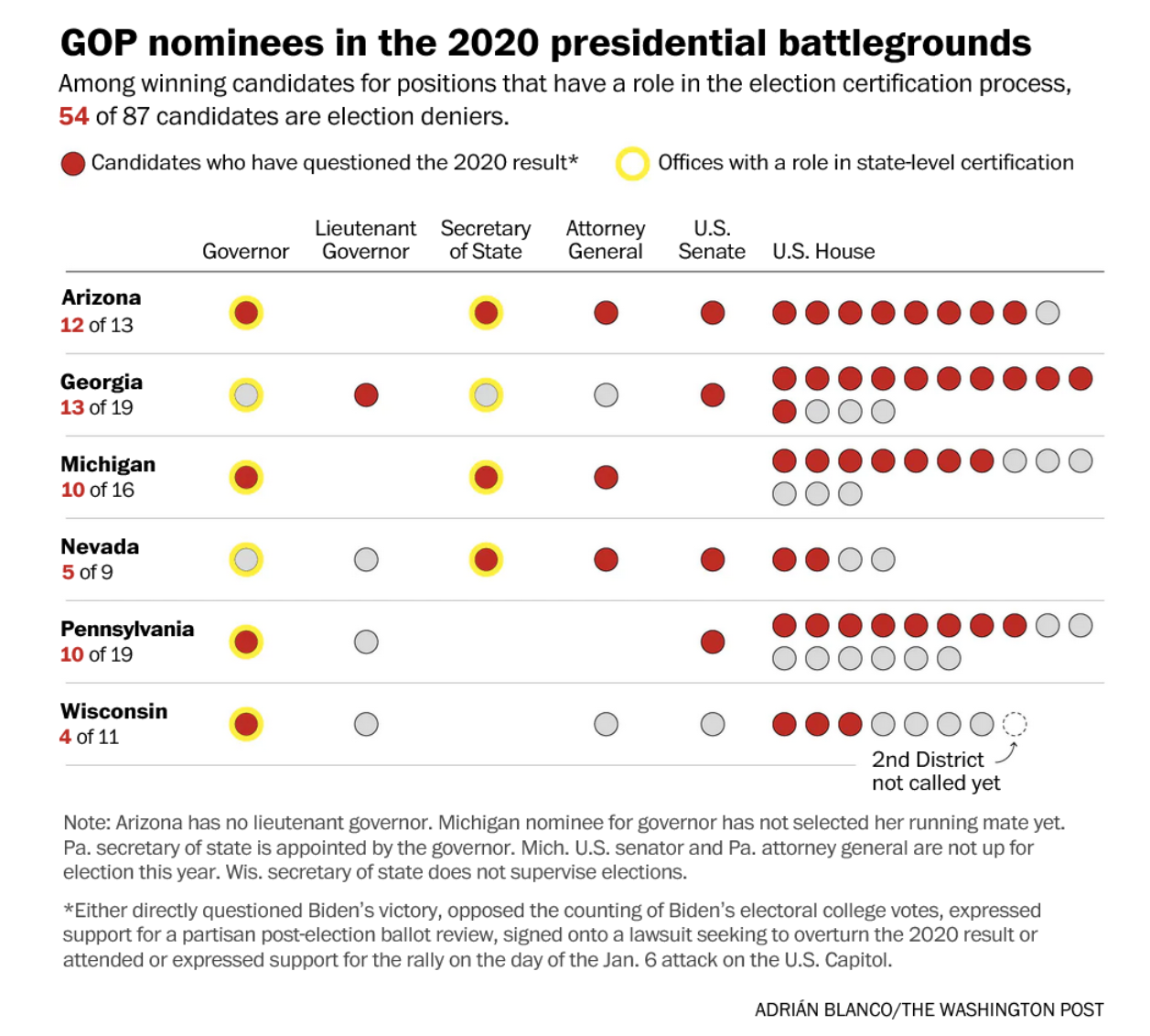The Daily Escape:

Azalea gardens at the Biltmore, Asheville NC – April 2023 photo by Sherry Maddock
We all know that the US is staring down a series of domestic threats to American democracy. Here’s a short list: Corruption on the Supreme Court, fundamental rights being lost via Supreme Court decisions, and voting rights being on the ballot in many states. Then there’s the question of whether any high level politician will ever be held to account for the Jan. 6, 2021 coup attempt.
These threats require that we convince every voter to turn out in 2024. Even so, surprisingly the presidential race in 2024 could be very close.
All of this could be undermined by the plans of the emerging political party called No Labels. They are gathering signatures to get on the presidential ballot in all 50 states in 2024, while recruiting both Democrats and Republicans to run as a bipartisan ticket. The WaPo reports that the group has already gained ballot access in Arizona, Colorado, Alaska and Oregon. Apparently, they are backed by shadowy donors who have provided them with $70 million in seed money.
Former Connecticut Sen. Joe Lieberman is associated with No Labels. Other names often mentioned as possible No Labels candidates are Sens. Joe Manchin (D-WVA), Kirsten Sinema (I-AZ), Susan Collins (R-ME), and former Republican Governor of Maryland, Larry Hogan.
Here we go again. Another centrist third party effort to create a “unity” ticket that supposedly appeals to those Americans who say they want to end the partisan bickering in Washington. This year, it’s No Labels who are trying to throw a big monkey wrench onto our Electoral College map. If they are successful, it could possibly send Trump back to another term in Washington.
All in the name of unity, of course.
Lieberman is acutely aware of the impact third-party bids can have on presidential elections. He ran as Gore’s VP candidate in 2000, when the Democratic campaign fell 537 Florida votes short of an Electoral College victory. That year, Ralph Nader, the Green Party nominee, won more than 97,000 Florida votes.
It might be useful for Lieberman et al to remember that in the 2016 presidential election, Jill Stein got 50,000 votes in Michigan, allowing Trump to win Michigan by 14,000 votes. Ross Perot in 1992 arguably shifted the race to Bill Clinton.
The No Labels website specifically describes itself as an “insurance policy against a Trump-Biden rematch.” From Larry Hogan:
“The vast majority of people in America are not happy with the direction of the country and they don’t want to see either Joe Biden or Donald Trump as president.”
Hasn’t Biden worked productively with Republicans to pass a broad array of bipartisan legislation? His main partisan domestic initiative was essentially written by Manchin, who now wants a larger voice with No Labels.
First, it seems bizarre for No Labels to equate Biden with Trump. Comparing the two when Trump is under indictment in NY and likely to be indicted in several more cases, after having incited an insurrection is crazy. What’s Biden’s crime? Not paying off porn stars?
Second, why is a group dedicated to promoting moderate, bipartisan legislation working against a president who has actually accomplished just that? Jonathan Chait in NY Magazine reports that No Labels’:
“…own polling suggests its candidacy would serve as a spoiler on behalf of Republicans. In December, it found an unnamed moderate third-party candidate would win just 20% of the vote, against 33% for Trump and 28% for Biden.”
This result seems completely logical given Biden’s greater reliance on moderate voters than Trump. But still they persist. For Wrongo, you only needed to say “Joe Lieberman” to convey that this organization is wrong-headed on its face. When politically marginal people like Lieberman and Manchin are interested in a new political organization, you know they’re looking for a way to insert themselves more deeply into our politics, despite how little actual support they have.
They’re willing to cause great harm for an outside shot at real power.
We need to understand that political centrism isn’t the halfway point between today’s median Democrat and today’s median Republican. Biden has governed basically as a 21st Century centrist; otherwise, the left of his Party wouldn’t be so frustrated with him. The No Label people need to realize that there’s already a perfectly good moderate Party in America, and it’s called the Democratic Party.
The No Label centrists seem to be living in some kind of dream world where the Electoral College isn’t closely divided and today’s political stakes aren’t monumental.
This is a vanity political project that could easily lead to a political disaster. Let’s hope it fizzles like most centrist third party bids have done in the past.















